/RESEARCH & CREATIVE PRACTICE
Whisper (2013–2015)
Acrylic enclosure, receipt printer, microcontroller, bespoke software, microphone.
Whisper is a collaboration with the inimitable Gabi Schaffzin.
Acrylic enclosure, receipt printer, microcontroller, bespoke software, microphone.
Whisper is a collaboration with the inimitable Gabi Schaffzin.
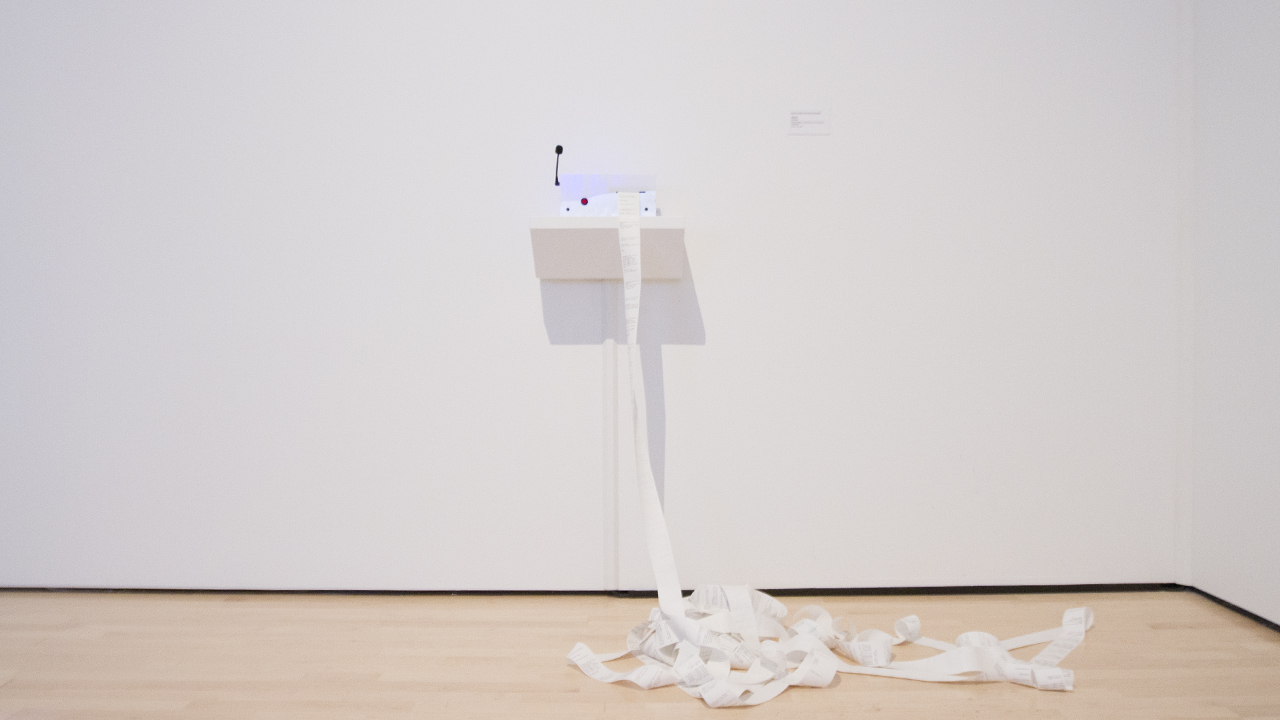
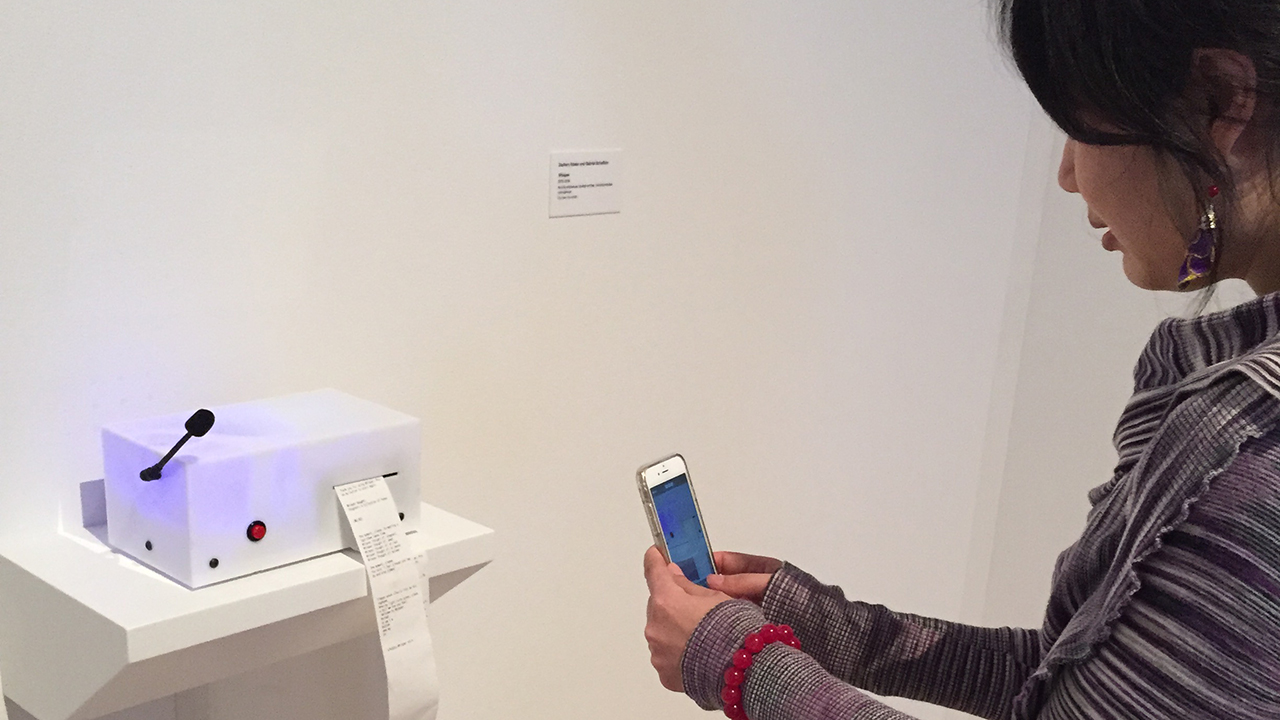
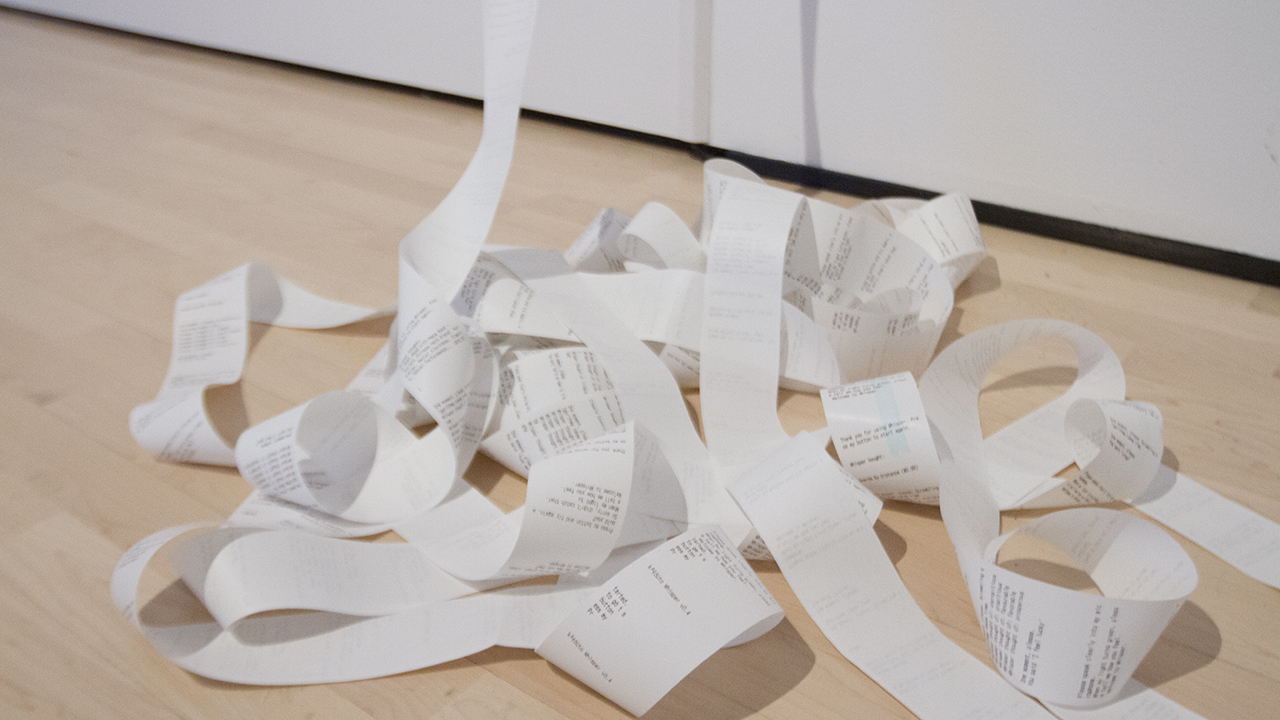
As we create and capture more data, and increasingly privilege the way in which machines interpret it, recommendation engines such as those used by Netflix, Amazon, and YouTube—as well as other inference and prediction algorithms which are being integrated into our internet-connected smart homes and smart household objects—begin to shape who we are. We acquire “algorithmic identities,” entries in the databases of corporations tracking everything from our queries and purchases online to our day-to-day lives—routes taken to work, times when we do laundry or make coffee, and personal health data.
We are all familiar with certain recommendation systems—like those employed by Amazon and Netflix—which use the data these companies have about us and about the products we’ve viewed, purchased, or watched in the past to make inferences about products or movies we might like. Yet the implications of inference and recommendation transcend the momentary annoyance of Amazon recommending you that children’s basketball hoop.
Ambient intelligence and algorithmic inference and recommendation increasingly “configure human life by tailoring its conditions of human possibility” (Cheney-Lippold, 169). Our actions—our very beings—are algorithmically-anticipated.
In exchange for the convenience of computational systems knowing what we’ve done in the past and making recommendations to us, easing the process of decision-making (or automating it entirely), we give up our agency and we, often unknowingly but maybe more importantly, give up, in a sense, “possibility” itself.
An early prototype of a device intended to intercept and scramble the data transmitted from connected products in the home, Whisper points to a future where we must reintroduce surprise and serendipity into a world in which our actions and lives are predominantly algorithmically-anticipated.
Gallery-goers (users) approach Whisper and speak to it, telling it how they feel. Whisper then demonstrates its associative data-transformation algorithm, returning a scrambled reinterpretation of it. At the same time, it orders a product on amazon.com, queried with the scrambled data about the user’s feelings, demonstrating the way it would interface or interfere with a product or service in the home.
Whisper has been exhibited in several venues both nationally and internationally, including the 2014 IMPAKT Festival and the 2015 Michigan State University Faculty Triennial.
We are all familiar with certain recommendation systems—like those employed by Amazon and Netflix—which use the data these companies have about us and about the products we’ve viewed, purchased, or watched in the past to make inferences about products or movies we might like. Yet the implications of inference and recommendation transcend the momentary annoyance of Amazon recommending you that children’s basketball hoop.
Ambient intelligence and algorithmic inference and recommendation increasingly “configure human life by tailoring its conditions of human possibility” (Cheney-Lippold, 169). Our actions—our very beings—are algorithmically-anticipated.
In exchange for the convenience of computational systems knowing what we’ve done in the past and making recommendations to us, easing the process of decision-making (or automating it entirely), we give up our agency and we, often unknowingly but maybe more importantly, give up, in a sense, “possibility” itself.
An early prototype of a device intended to intercept and scramble the data transmitted from connected products in the home, Whisper points to a future where we must reintroduce surprise and serendipity into a world in which our actions and lives are predominantly algorithmically-anticipated.
Gallery-goers (users) approach Whisper and speak to it, telling it how they feel. Whisper then demonstrates its associative data-transformation algorithm, returning a scrambled reinterpretation of it. At the same time, it orders a product on amazon.com, queried with the scrambled data about the user’s feelings, demonstrating the way it would interface or interfere with a product or service in the home.
Whisper has been exhibited in several venues both nationally and internationally, including the 2014 IMPAKT Festival and the 2015 Michigan State University Faculty Triennial.

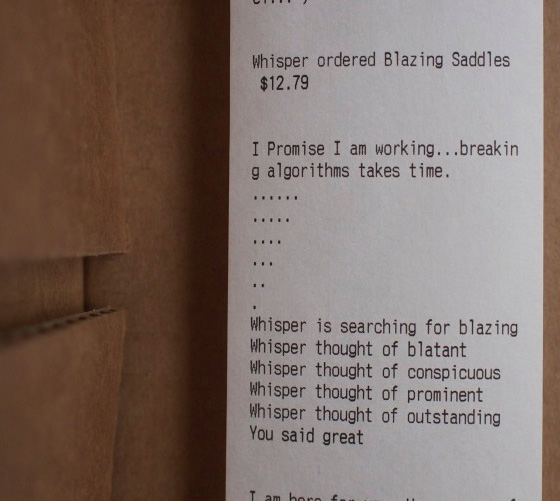
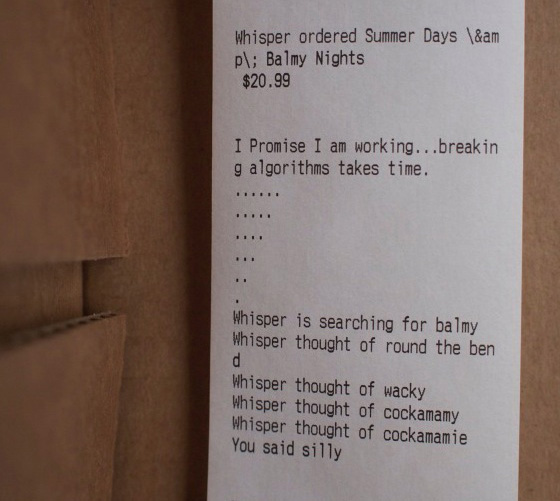

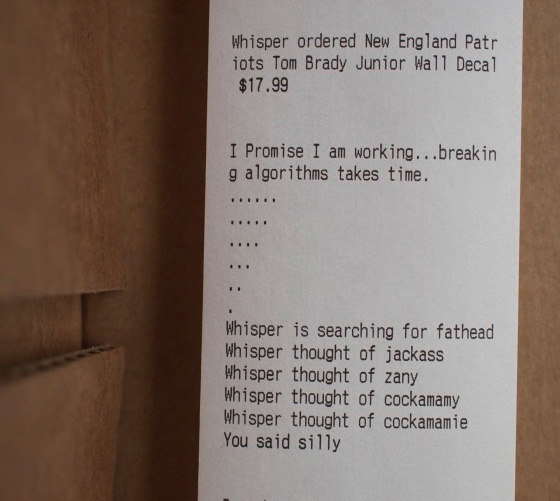
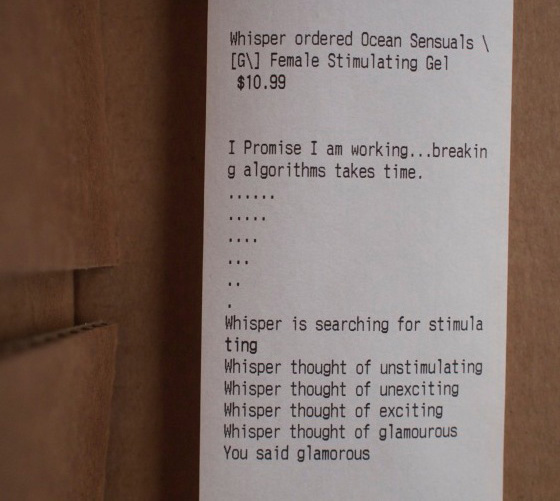
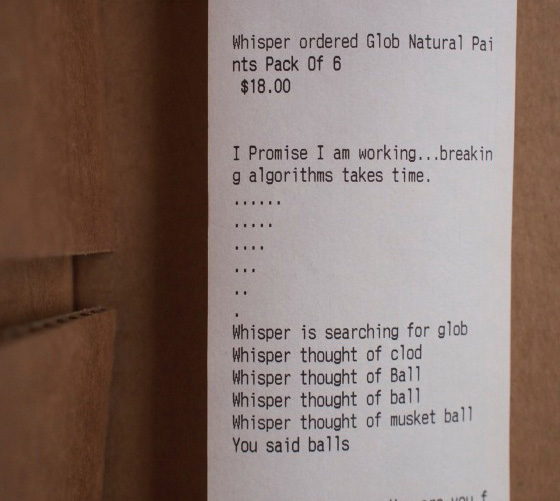

References
Cheney-Lippold, J. “A New Algorithmic Identity: Soft Biopolitics and the Modulation of Control.” Theory, Culture & Society 28.6 (2011): 164-81.
de Vries, Katja. “Identity, Profiling Algorithms and a World of Ambient Intelligence.” Ethics and Information Technology 12.1 (2010): 71-85.
Cheney-Lippold, J. “A New Algorithmic Identity: Soft Biopolitics and the Modulation of Control.” Theory, Culture & Society 28.6 (2011): 164-81.
de Vries, Katja. “Identity, Profiling Algorithms and a World of Ambient Intelligence.” Ethics and Information Technology 12.1 (2010): 71-85.